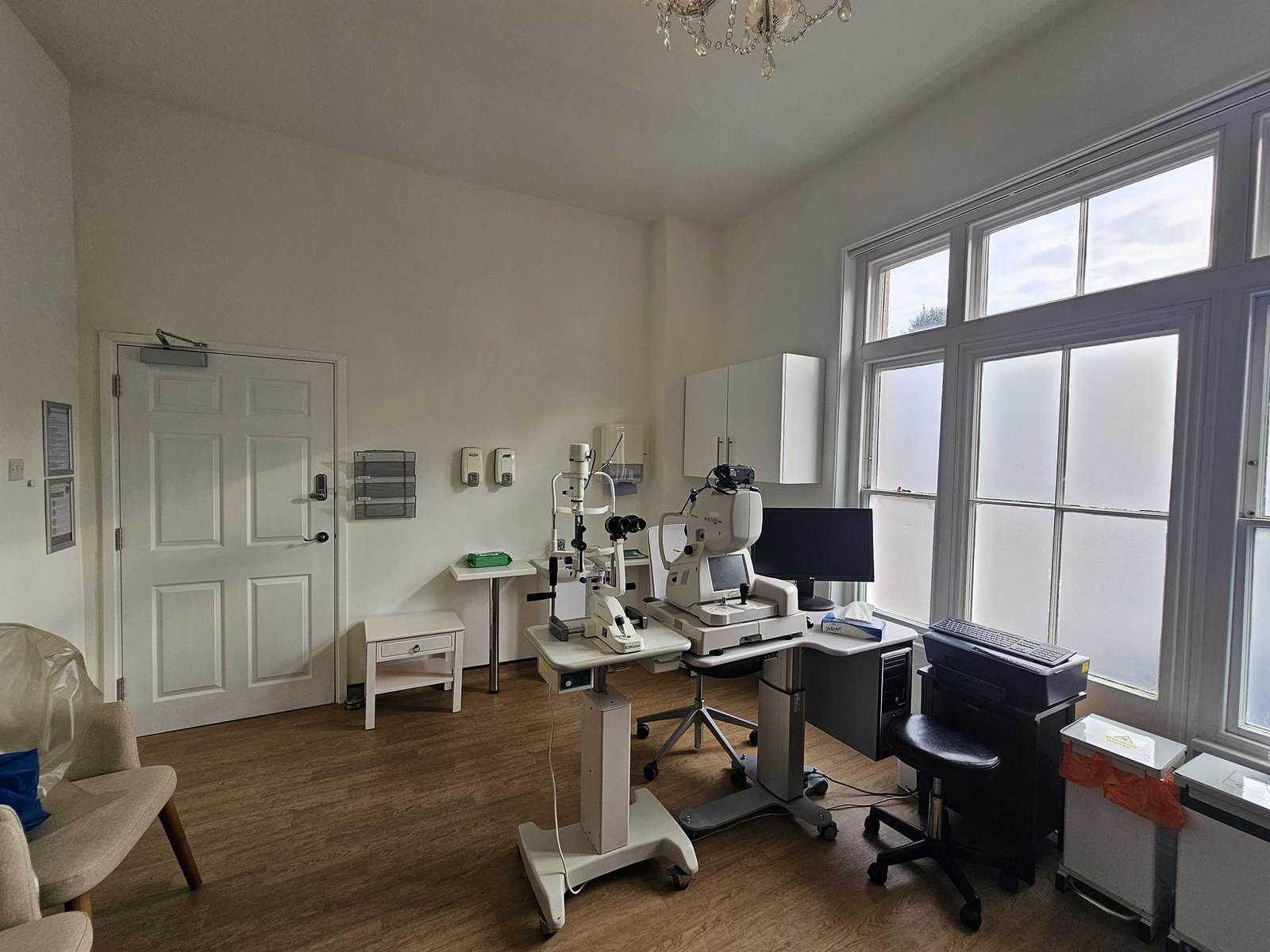Retinal Vein Occlusion
Protect your vision with expert treatment for Retinal Vein Occlusion at The Forbury Clinic. Submit an enquiry and discover our advanced treatment options.

Overview
Retinal Vein Occlusion (RVO) is a serious eye condition where one of the veins carrying blood away from the retina becomes blocked, leading to vision problems and potential loss of sight. This blockage can cause swelling, bleeding, and impaired vision. Early diagnosis and treatment are crucial to prevent permanent damage. At The Forbury Clinic, we provide expert care and advanced treatment options for RVO. Contact us today to learn more and schedule a consultation.


What is Retinal Vein Occlusion?
Retinal Vein Occlusion (RVO) occurs when a vein in the retina is blocked, preventing blood from draining properly and causing a buildup of pressure. This leads to swelling, bleeding, and fluid leakage in the retina, which can result in blurred vision, dark spots, or a sudden loss of vision. There are two types of RVO: Central Retinal Vein Occlusion (CRVO), which affects the main vein of the retina, and Branch Retinal Vein Occlusion (BRVO), which affects smaller branches of the retinal vein. Symptoms may include sudden vision loss, blurred vision, and dark spots in the field of vision.
Causes and Risk Factors
Causes
Retinal Vein Occlusion can develop due to various factors, including:
Aging:
More common in individuals over 50.
High Blood Pressure:
Increases the risk of vein blockage.
High Cholesterol:
Contributes to the hardening of the arteries and veins.
Diabetes:
High blood sugar levels can damage blood vessels.
Glaucoma:
Elevated eye pressure can increase the risk of RVO.
Smoking:
Damages blood vessels and increases the risk of occlusion.
Cardiovascular Disease:
Conditions affecting blood flow and vessel health.
Risk Factors
Age:
Risk increases with age, especially over 50.
Hypertension:
High blood pressure is a significant risk factor.
High Cholesterol:
Contributes to vein blockage.
Diabetes:
Increases the likelihood of vascular issues.
Smoking:
Damages blood vessels and increases the risk of occlusion.
Glaucoma:
High eye pressure is a risk factor.
Cardiovascular Disease:
Increases the risk of vascular occlusions.
Understanding these causes and risk factors helps in the early diagnosis and effective management of Retinal Vein Occlusion, improving patient outcomes.
Diagnosis
Diagnosing Retinal Vein Occlusion involves a comprehensive evaluation at The Forbury Clinic. The diagnostic process includes:
- Initial Consultation: Discussing symptoms, medical history, and potential risk factors with a specialist.
- Visual Acuity Test: Assessing the clarity and sharpness of your vision.
- Dilated Eye Exam: Using drops to dilate the pupils and examine the retina for signs of occlusion.
- Optical Coherence Tomography (OCT): Imaging the retina to detect swelling, bleeding, and fluid leakage.
These steps ensure a thorough and accurate diagnosis, aiding in the development of an effective treatment plan.

Treatment Options
Based on the diagnosis, various treatment options for Retinal Vein Occlusion may be considered:
- Non-Surgical Options
- Surgical Options
- Innovative Treatments
Observation:
In cases where occlusion is minor or not progressing, regular monitoring may be advised.
Laser Therapy:
Using laser to seal leaking blood vessels and reduce macular edema.
Vitrectomy:
Removing the vitreous gel and blood from the eye to reduce traction on the retina.
Advanced Imaging Techniques:
Utilising the latest imaging technology to precisely map the retina for targeted treatment.
Minimally Invasive Surgery:
Employing the latest surgical techniques to improve recovery times and outcomes.
At The Forbury Clinic, our multidisciplinary team ensures that each patient receives the most appropriate and effective treatment, tailored to their specific needs and health goals.
Managing Retinal Vein Occlusion
Managing Retinal Vein Occlusion involves a combination of medical treatments and lifestyle adjustments to control symptoms and improve overall quality of life. At The Forbury Clinic, we provide comprehensive care and guidance to help manage this condition:
Healthy Diet:
Encouraging a diet rich in fruits, vegetables, and omega-3 fatty acids.
Regular Exercise:
Promoting physical activity to improve overall health and blood flow to the eyes.
Blood Sugar Control:
Managing diabetes effectively to prevent further eye damage.
Blood Pressure Management:
Keeping blood pressure within a healthy range to reduce the risk of complications.
Routine Eye Exams:
Scheduling frequent check-ups to monitor eye health and adjust treatment as necessary.
These management strategies aim to complement medical treatments and provide a holistic approach to preserving vision and overall well-being.
Complications and Prognosis
While Retinal Vein Occlusion treatment is generally effective, it is important to be aware of potential complications and the prognosis:
Complications:
- Macular Edema: Swelling in the macula leading to vision loss.
- Neovascularization: Abnormal blood vessel growth leading to further complications.
- Glaucoma: Increased pressure in the eye due to blocked blood flow.
Prognosis:
The prognosis for patients undergoing Retinal Vein Occlusion treatment is generally positive, with many individuals experiencing significant improvement in vision. Early intervention and proper post-treatment care are crucial for successful outcomes. Regular follow-ups and ongoing management are essential to prevent complications and ensure optimal eye health.


Why Choose The Forbury Clinic?
Choosing The Forbury Clinic for your Retinal Vein Occlusion treatment ensures you receive exceptional care from a team of experienced specialists. Our clinic is renowned for its expert medical staff who are dedicated to diagnosing and treating retinal conditions with precision and compassion. We use state-of-the-art diagnostic tools and the latest medical advancements to provide accurate diagnoses and innovative treatments tailored to your specific needs. Our patient-centered approach prioritises your comfort, privacy, and overall well-being, offering comprehensive support throughout your treatment journey. At The Forbury Clinic, you can trust that you are in capable hands, with a dedicated team committed to helping you achieve optimal eye health and a better quality of life.
